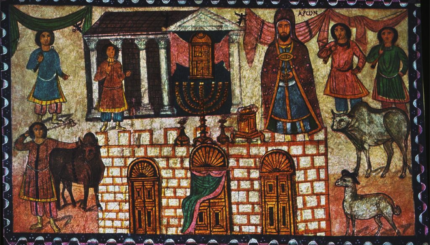Excerpted with permission from The Jewish Religion: A Companion, Oxford University Press.
The Jewish religion encourages neither a morbid preoccupation with death nor any refusal to acknowledge the fact of human mortality. Judaism teaches that life on earth is a divine gift to be cherished in itself, not only as a prelude to the World to Come. Death is seen as a tragic, though inevitable, event.
There are many tales of Jewish pietists weeping on their deathbed because it is only in the here and now that the precepts of the Torah can be carried out. As the talmudic Rabbis put it: “This World is the place in which the mitzvot are performed. The World to Come is the place of reward for keeping them,” implying that the devout Jew should think more of the joy of living as a servant of God than dwell on the rewards for righteous living which are best left to God Himself.
Yet, while positive euthanasia is condemned in Jewish law, some Jewish thinkers hold that it is permitted to pray for the death of a person suffering from an incurable and extremely painful disease. Moreover, the 18th-century Kabbalist Hayyim Ibn Atar writes that a good Jew should not be afraid to die or be angry when his time comes but should surrender his soul willingly in confidence that it is about to enter into eternal life.
With your help, My Jewish Learning can provide endless opportunities for learning, connection and discovery.
When death does come, the corpse has to be treated with respect as the vehicle of the soul while the deceased was still alive on earth. A whole series of regulations have developed around the arrangements necessary for the dead to be given a decent burial. Some of these regulations belong in the area of folklore and superstition but since they are recorded in the Shulhan Arukh, the standard code of Jewish law, they have acquired the dignity of law to be observed by faithful Jews and they are followed today very scrupulously, at least by Orthodox Jews.
Sign up for a Journey Through Grief & Mourning: Whether you have lost a loved one recently or just want to learn the basics of Jewish mourning rituals, this 8-part email series will guide you through everything you need to know and help you feel supported and comforted at a difficult time.
Looking for a way to say Mourner’s Kaddish in a minyan? My Jewish Learning’s daily online minyan gives mourners and others an opportunity to say Kaddish in community and learn from leading rabbis.
Torah
Pronunced: TORE-uh, Origin: Hebrew, the Five Books of Moses.


